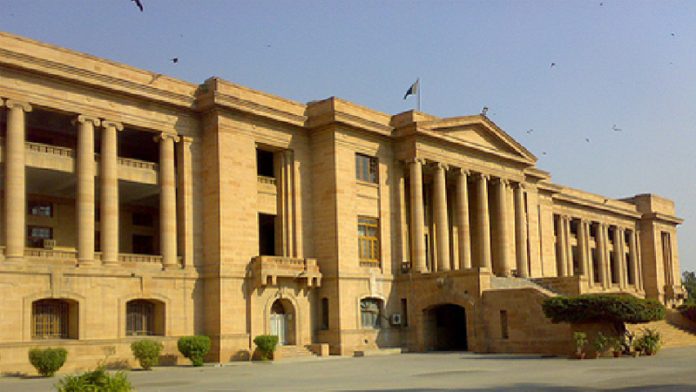KARACHI: A division bench of Sindh High Court (SHC) comprising Justice Munib Akhtar and Justice Muhammad Omar Sial allowed more than two dozen identical petitions filed by importers of different items ranging from perfumes to ceramic tiles.
The government through an SRO 1035(1)2017 has imposed different Regulatory Duties (RD) on 731 products being imported into the country.
The court has ordered, “The SRO dated October 2017, issued in terms of, and in purported exercise of the power conferred by, the amended section 18(3) is declared to be ultra vires, of no legal effect and is hereby quashed.” “The respondents or any authority or officer thereof are restrained from demanding any duty in terms of SRO 1035 or from enforcing the same in any manner whatsoever, whether by way of detaining or refusing release of import good or otherwise,” the court order further added.
The issue raised in these petitions is the vires of an amendment made by the Finance Act, 2017 in section 18(3) of the Customs Act, 1969, in light of the seminal judgment of the Supreme Court in Mustafa Impex and others vs Government of Pakistan and others PLD 2016 SC 808 (Mustafa Impex). The section 18(3) allows for the imposition of regulatory duty on goods imported or exported. Prior to the amendment, this power vested in the federal government. By the Finance Act, 2017, section 18(3) was amended such that for “federal government” the words “Board, with the approval of Federal Minister-in-charge” were substituted, board of course meaning the Federal Board of Revenue or “FBR”.
The petitioners’ case is that the amendment cannot survive constitutional scrutiny when tested on the anvil of Mustafa Impex.
Khalid Jawed Khan, leading counsel arguing the case for the petitioners referred to SRO 1035 and the amendment made in section 18(3) of the Finance Act, 2017, learned counsel referred to subsection (5) of the same section whereby an additional duty, over and above the regulatory duty, can also be imposed drawing attention to the fact that there the previous position continued to prevail and the power was to be exercised by the Federal Government. Thus, learned counsel submitted, the statute expressly recognised the distinction between the Federal Government on one hand and “Federal Minister-in-charge” on the other. Learned counsel submitted that it was well-settled that the Constitution recognised the trichotomy of powers. In terms of Article 90 executive authority was to be 3 exercised by the federal government comprised of the prime minister and federal ministers and learned counsel referred to Article 92 in terms whereof federal ministers are appointed. It was submitted that the federal ministers when acting together as the Cabinet were collectively responsible to the Parliament, and reference was made to Article 91(6).
It was submitted that a Minister, acting individually, could not take those decisions that were required to be taken by the federal government and the cabinet. Referring to Mustafa Impex, learned counsel submitted that the Supreme Court had now put it beyond all doubt that the executive authority of the Federation was to be exercised by the cabinet and not by the prime minister or any individual minister. Reference to Article 97 was also made.
Meanwhile, respondents, the government, strongly contest this claim, submitting that the amendment is intra vires and does not violate any constitutional provision or principle, including the law laid down in Mustafa Impex. During the course of the hearing a company, the Organisation for Advancement and Safeguard of Industrial Sector (being an entity registered under section 42 of the Companies Ordinance, 1984) sought permission to intervene on the side of the respondents. The intervener is a trade body whose objectives are to safeguard the interests of the local industry. The intervener fully supported the imposition of the regulatory duty and pleaded in favour of the vires of the amendment.
In view of the foregoing, we declare and hold as follows: a) Section 18(3) of the Customs Act, 1969 as and to the extent as amended by the Finance Act, 2017 is declared to be ultra vires the Constitution, and of no legal effect; b) SRO 1035(I)/2017 dated October 16, 2017, issued in terms of, and in purported exercise of the powers conferred by, the amended section 18(3) is declared to be ultra vires, of no legal effect and is hereby quashed, the bench said parting with the judgment.
The respondents or any authority or officer thereof are restrained from demanding any duty in terms of SRO 1035 or from enforcing the same in any manner whatsoever, whether by way of detaining or refusing release of imported goods or otherwise, the order said. The security given by the petitioners under interim orders is directed to be released forthwith. Any sums paid by the petitioners by way of regulatory duty under or in terms of SRO 1035 must be refunded in full. Such refund may be made by way of direct repayment or adjustment (against any tax or duty) and in one lump sum or in instalments, as the FBR may determine (but the same policy must be adopted in all cases). However, the entire amount that is refundable must in each case be settled in full not later than October 31, 2018.
This judgment is suspended for 30 days in order to enable any aggrieved person/party so desirous to avail the remedy of appeal. During this period the interim order dated October 26, 2017, made in CP D-7159/2017 (and also as made applicable in other petitions) shall continue to remain operative.




